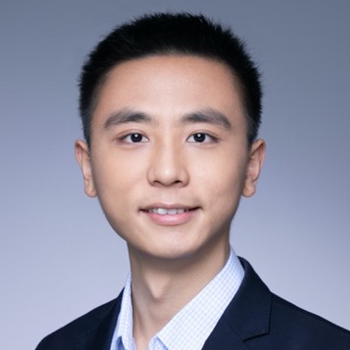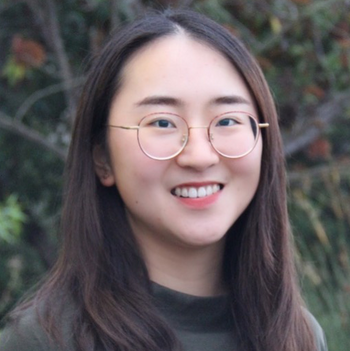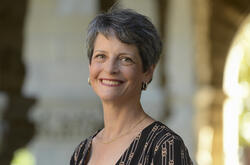Scholars and Experts Discuss APEC’s Role in Addressing Energy Challenges in Asia
As nations implement clean energy solutions to combat climate change, multilateral institutions like the Asia-Pacific Economic Cooperation (APEC) remain an important tool in facilitating regional collaboration. On November 1, Shorenstein APARC presented a panel discussion on Asia-Pacific Energy Challenges and the Role of APEC. It was the third installment in the Center's autumn 2023 seminar series on APEC, complementing the forum's summit in San Francisco.
The panelists included Larry Goulder, Professor in Environmental and Resource Economics and Director of the Stanford Center for Environmental and Energy Policy Analysis; Larry Greenwood, Chairman of the Board of the Japan Society of Northern California, Senior Adviser at BowerGroupAsia, and U.S. Ambassador to APEC from 2000-2003; Gita Wirjawan, Former Minister of Trade and former Chairman of the Investment Coordinating Board of the Republic of Indonesia and Visiting Scholar at Shorenstein APARC. Shorenstein APARC Fellow Thomas Fingar moderated the conversation.
Goulder opened the discussion with an analysis of energy supply and use in China, what the Chinese government is doing on the climate front, and how the nation’s infrastructure projects connect with its energy use and consumption. He reminded the audience that China has emerged as the largest emitter of carbon dioxide for greenhouse gases and indicated that “if we're going to make a significant dent in dealing with climate change, China's action is going to be indispensable.”
Goulder noted that although China’s growth has slowed in recent years, its energy demands continue to grow, as does its reliance on coal-fired power plants. Coal still represents about 50% of the country’s total energy mix, whereas the other 50% is from non-fossil power, namely, wind, solar, hydroelectric, and nuclear. According to Goulder, the current energy mix is “good news for those concerned about climate change, the share of renewable energy is increasing.”
To help meet UN emissions commitments, China has implemented a nationwide emissions trading system, a market-based approach to controlling pollution by providing economic incentives for reducing the emissions of pollutants. The system is expected to more than double the CO2-covered emissions worldwide by the time it is fully implemented. "By 2026, [the system] is expected to contribute to about half of the reductions of CO2-acid, which would be needed for China to meet its pledge of net zero by 2060,” said Goulder. He advocated for linking China's emissions trading system to emissions trading in a multinational market.
Greenwood then outlined some of APEC’s history as it relates to energy issues and indicated that energy was an early and enduring focus of the forum. In 1990, a time of fluctuations in the global oil market, APEC founded its Energy Working Group. Since then, the group's scope has expanded to address renewable energy needs. According to Greenwood, the working group is responsible for conducting workshops, seminars, studies, and creating discussion venues to facilitate exchange between working-level officials — something APEC does more broadly.
Greenwood discussed the voluntary emissions targets of the working group, in which APEC members set targets and then monitor them and “use peer pressure to drive or to encourage compliance and action to make those targets.” Member nations are largely focused on energy intensity targets, he explained. In addition, APEC has maintained a target to double renewable energy generation between 2010 and 2030. “Mainly because of China, APEC is easily on track to meet that goal,” said Greenwood.
For Greenwood, energy security and climate change are the two prevailing interests of the APEC working group, but another area the forum is increasingly interested in is energy emissions trading and carbon capture. “According to the studies, it looks like we're not going to reach carbon zero, so we need to find ways, not only natural change but technology, to capture carbon and store it.”
Wirjawan proceeded to discuss energy security in the context of global development. He highlighted a paradox of the sustainability narrative, namely, that the aspiration to attain carbon neutrality by 2050 can seem too elitist because it resonates with the 15 to 20 percent of the world’s population living in developed countries. The remaining 80 to 85 percent of the global population, however, “are still concerned about putting food on the table, irrespective of how energy is sourced.”
Wirjawan also illustrated how large developing economies like Indonesia and India struggle to increase electrification on a per capita basis and argued that “it's probably going to take around 90 to 100 years. This duration is significantly irreconcilable with the 27 years left until 2050, when and where we have to attain carbon neutrality. So the question is, how do we narrow the gap?”
Wirjawan noted that “on the demand side, it is a lot easier to socially re-engineer, socially re-architect somebody's behavior in a developing economy so that he or she would stop using fossil fuel. The million dollar question is whether the alternatives will be as affordable.”
From a technological standpoint, said Wirjawan, we have all the necessary solutions to decarbonize. ”The problem for many developing economies is the economics of what it would take for all of us to bring down the cost from 20 cents per kilowatt to 5 cents.”
To achieve such goals, massive amounts of capital and organization are required, concluded Wirjawan. APEC's value, he said, is its ability to facilitate and accelerate information sharing and organization and reduce the win-lose dimension between environment and economic development.
The panel highlighted the need for multilateral cooperation in addressing climate change and energy security issues. The participants agreed that APEC has a significant role in bridging the divide between different constituent groups in the Asia-Pacific region and directing energy and economic policy that may accelerate the pace towards a more sustainable future.
Read More
The third installment of Shorenstein APARC’s fall seminar series examined energy challenges in the Asia-Pacific region and the role of the Asia-Pacific Economic Cooperation in facilitating collaborative clean energy solutions.


































